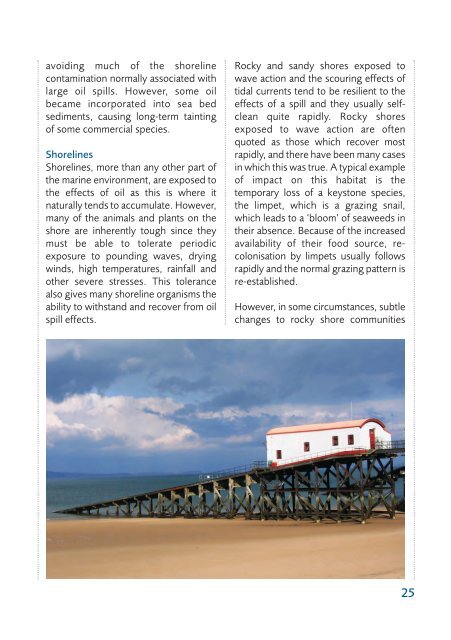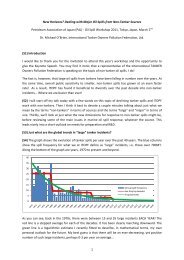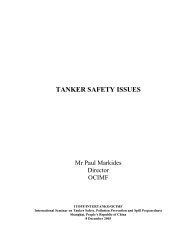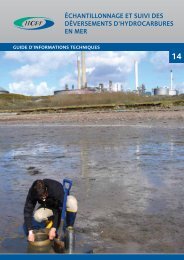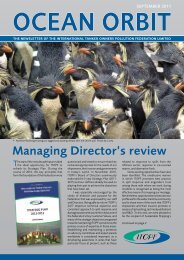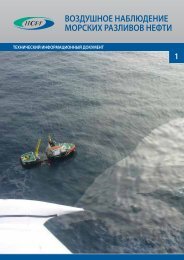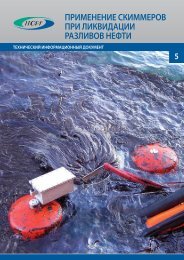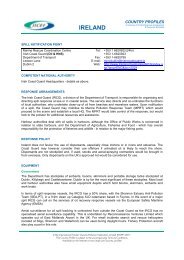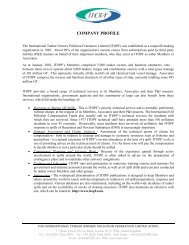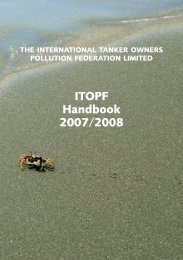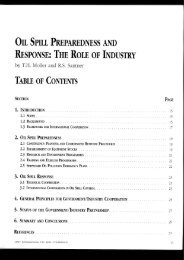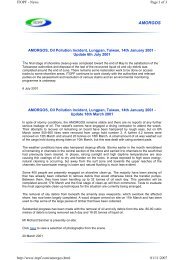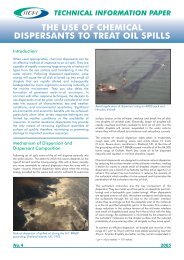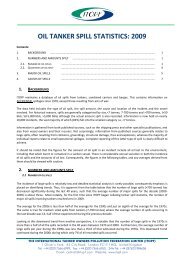Members Handbook 20023 - ITOPF
Members Handbook 20023 - ITOPF
Members Handbook 20023 - ITOPF
Create successful ePaper yourself
Turn your PDF publications into a flip-book with our unique Google optimized e-Paper software.
avoiding much of the shoreline<br />
contamination normally associated with<br />
large oil spills. However, some oil<br />
became incorporated into sea bed<br />
sediments, causing long-term tainting<br />
of some commercial species.<br />
Shorelines<br />
Shorelines, more than any other part of<br />
the marine environment, are exposed to<br />
the effects of oil as this is where it<br />
naturally tends to accumulate. However,<br />
many of the animals and plants on the<br />
shore are inherently tough since they<br />
must be able to tolerate periodic<br />
exposure to pounding waves, drying<br />
winds, high temperatures, rainfall and<br />
other severe stresses. This tolerance<br />
also gives many shoreline organisms the<br />
ability to withstand and recover from oil<br />
spill effects.<br />
Rocky and sandy shores exposed to<br />
wave action and the scouring effects of<br />
tidal currents tend to be resilient to the<br />
effects of a spill and they usually selfclean<br />
quite rapidly. Rocky shores<br />
exposed to wave action are often<br />
quoted as those which recover most<br />
rapidly, and there have been many cases<br />
in which this was true. A typical example<br />
of impact on this habitat is the<br />
temporary loss of a keystone species,<br />
the limpet, which is a grazing snail,<br />
which leads to a ‘bloom’ of seaweeds in<br />
their absence. Because of the increased<br />
availability of their food source, recolonisation<br />
by limpets usually follows<br />
rapidly and the normal grazing pattern is<br />
re-established.<br />
However, in some circumstances, subtle<br />
changes to rocky shore communities<br />
25


